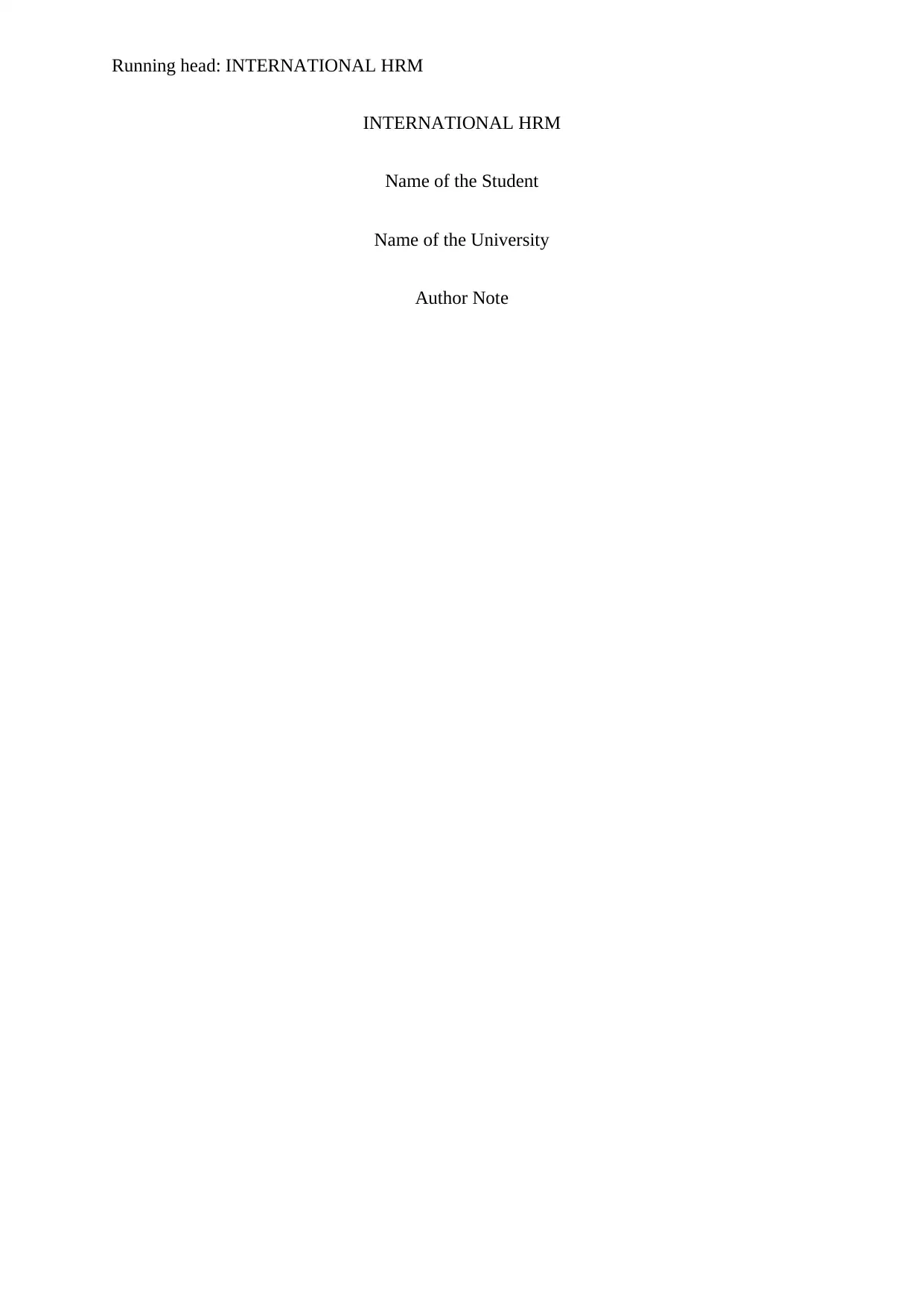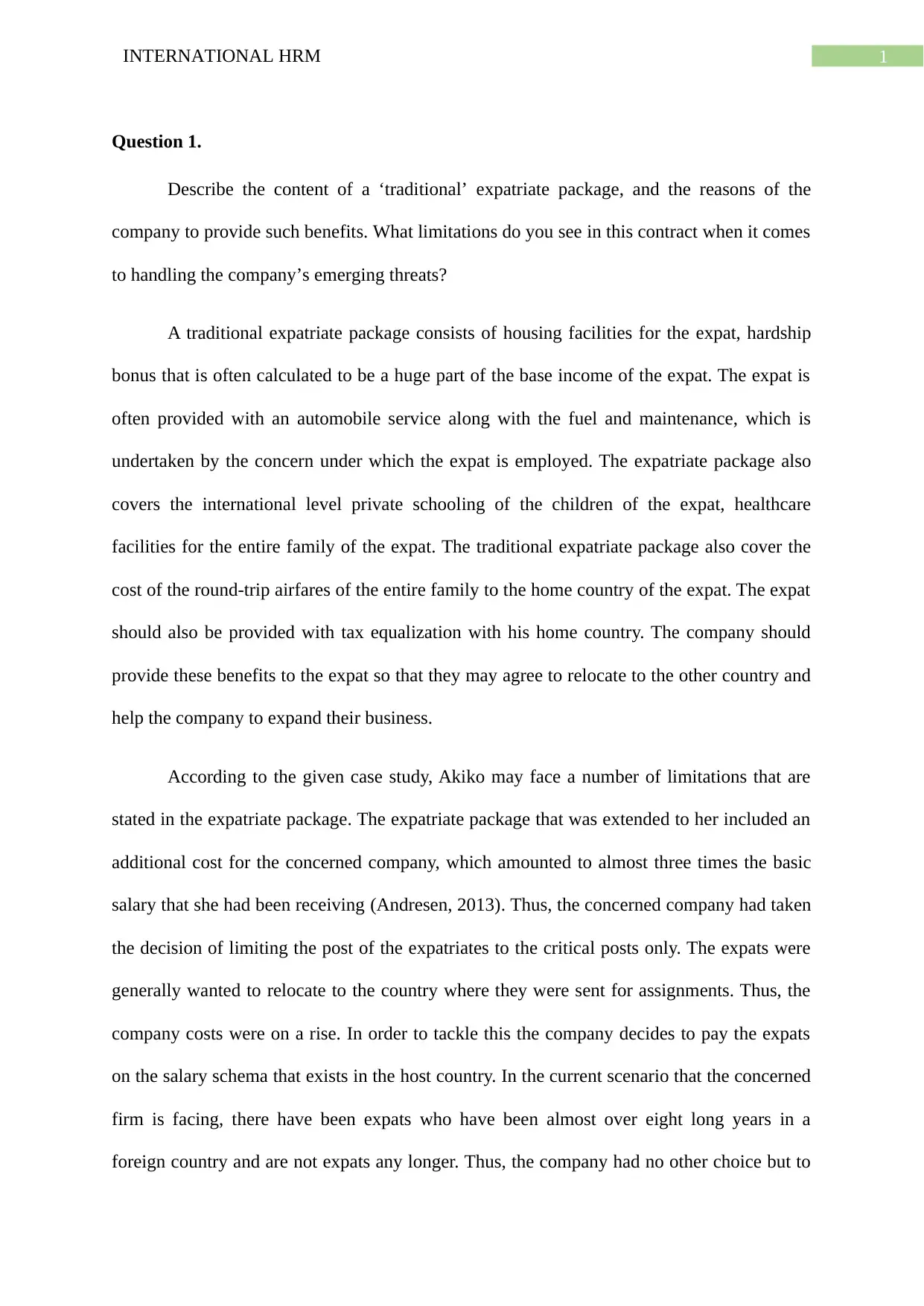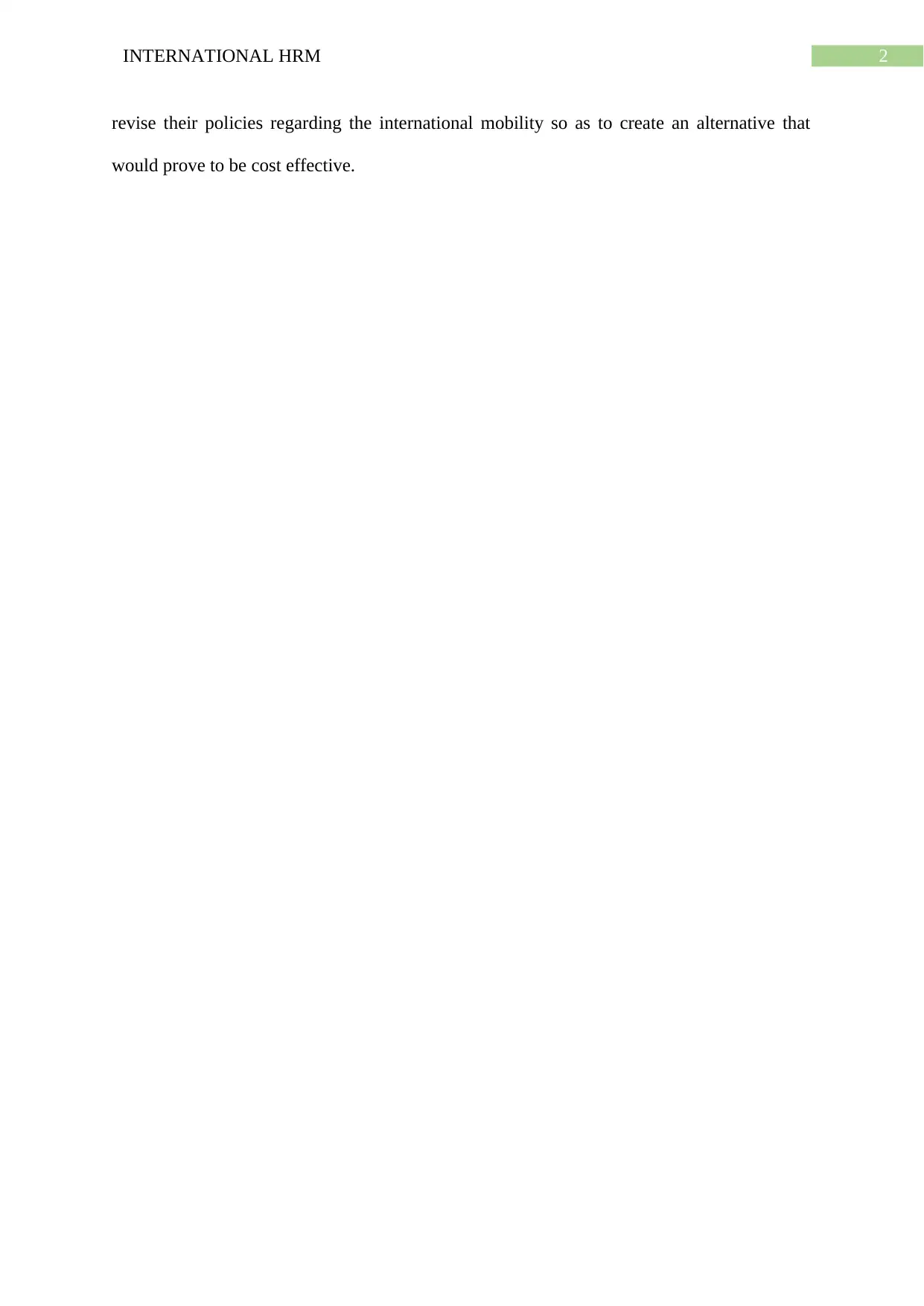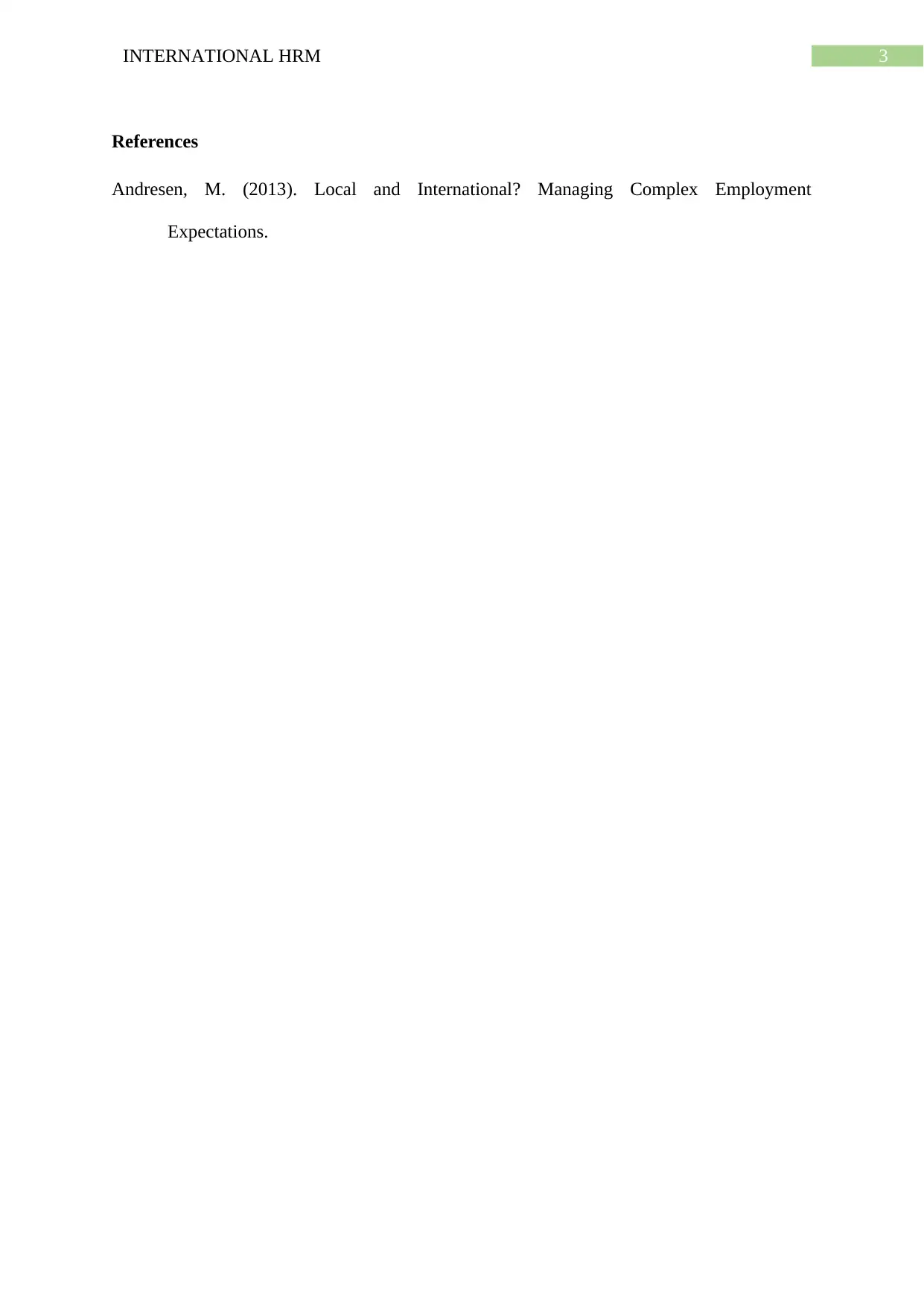International HRM Assignment: Expatriate Package and Company Threats
VerifiedAdded on 2020/04/13
|4
|435
|61
Report
AI Summary
This assignment delves into the realm of International HRM, specifically focusing on the intricacies of expatriate packages. It begins by defining the components of a traditional expatriate package, which includes housing, hardship bonuses, transportation, educational support for children, and healthcare. The assignment then explores the rationale behind companies offering such comprehensive benefits, highlighting their role in attracting and retaining talent for international assignments. The core of the assignment lies in analyzing the limitations of these packages, especially in the context of rising costs and evolving business needs. The assignment discusses the financial burden associated with traditional expatriate packages, which can be several times the base salary. It also addresses the need for companies to revise their policies to adapt to changing circumstances and create cost-effective alternatives. The assignment emphasizes the importance of understanding the financial implications and the need for strategic adjustments in managing international assignments effectively.
1 out of 4







![[object Object]](/_next/static/media/star-bottom.7253800d.svg)